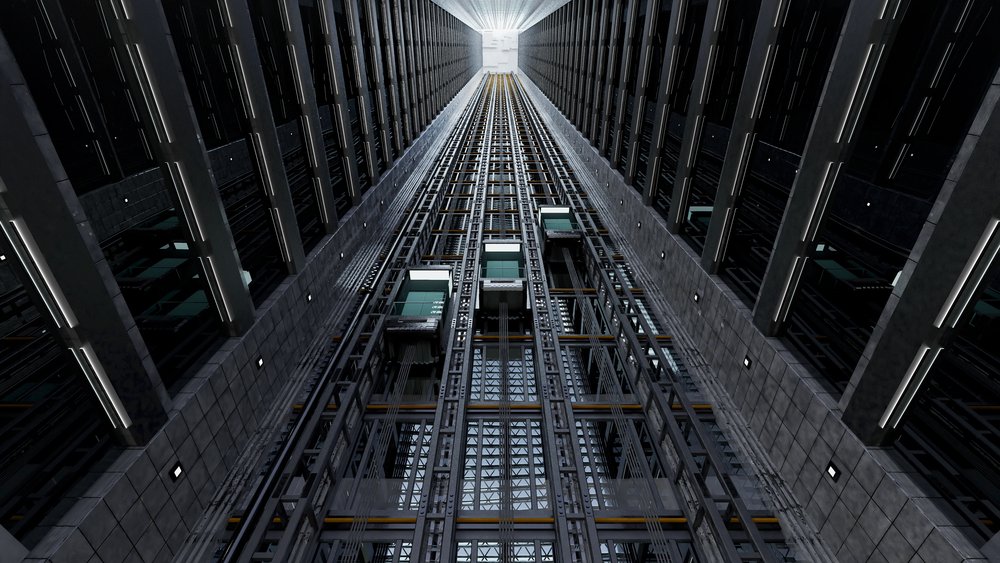Table of Contents (click to expand)
You would have heard a lot about jumping in a free-falling elevator just as it hits the ground might save you from any injuries whatsoever. Is there any truth in that?
For people who live in urban areas, especially those that call skyscrapers home, elevators have become an integral part of their daily lives. It’s only fair… how else could someone living on the 25th floor reach their apartment without exhausting themselves every day?
Can you even imagine living on the 25th floor and having to undertake that back-breaking, bone-wrenching climb every day just to reach your own house? If you can imagine that, tell me how attractive the good view will be with a broken back.

Still, the very idea of elevators may be somewhat intimidating to many, and their fear is not totally unwarranted. When you climb in an elevator, you essentially enter an enclosed metal ‘box’ that relies entirely on machinery, which in turn depends on electricity. That leads to a rather natural question, what if there is a power failure when you’re inside an elevator?

There is a particular idea or “rumor” related to elevators that makes the rounds from time to time. Basically, it says, ‘If you happen to be in an elevator that is in free fall, you can jump at the precise moment when the elevator hits the ground. This little leap will save your life, or at least reduce the degree of your injuries.
That sounds rather cool, but is there any actual truth to this?
Free Falling In An Elevator
An elevator is said to be in free-fall when it falls through the levels of the shaft after being ‘freed’ from the effect or control of the tools and systems responsible for its safety. In other words, the free-fall of an elevator is very bad news. Being in one while it plummets to Earth is even worse. An elevator travels through different levels of a building with the help of a number of systems; these ‘security’ systems keep the elevator in place and the riders safe. However, due to certain technical complexities, these systems may cease to function suddenly (although the probability of that happening is very low).
If you are really unlucky and happen to be in an elevator as it plummets to the ground, what would happen?
Also Read: Why Do You Feel Strange In An Elevator Just After It Starts/Stops?
Standing Still In A Free-falling Elevator
Since the elevator is in free-fall, the only force contributing to its fall is the force of gravity. Therefore, the elevator will travel downwards with an acceleration of 9.8 meters per second squared (the standard value of acceleration due to gravity). Since you are inside the elevator, you are also moving downwards at the same velocity as the elevator.
Note that this happens only when you are standing completely still, not moving at all in the free-falling elevator.
Jumping As The Elevator Hits The Ground

Let’s assume that you walked out of a Physics class just before entering that fateful elevator that is now falling freely to Earth. Just as it nears the ground, you time your leap, and jump! An impressive achievement in that panicked moment, but would it actually help?
NO.
Let’s look at the factors involved here; first off, it would be almost impossible for you to know what floor you were level with while experiencing a free-fall. Assuming that there was a power outage, how would you know the precise moment at which to jump? Even if, by some miracle, you jumped at precisely the right moment, would you be able to walk away unscathed?
No, you would definitely still sustain injuries. The severity of those injuries would depend on the height of your fall; the higher you fall from, the more acceleration and force of impact, which would increase the severity of your injuries.
Also Read: What If You Jumped Out Of An Airplane Into The Sea Without A Parachute?
What’s Wrong With Jumping?
To start with, the force with which you would hit the ground depends on your momentum. Momentum is nothing but the product of your mass and velocity. If the elevator has been falling for more time, then the injuries would be much more grievous. More time in free fall = more momentum = more overall damage.
Also, if you jumped even a little before the elevator struck the ground, you would crack your head against the ceiling of the elevator, causing even more damage. Even if you jumped at the exact moment of impact, you would change your velocity only a small amount. This minute change in your velocity would be insignificant, in terms of the severity of injuries that you would sustain.
After learning all that, don’t let anyone infect you with the idea that jumping in a free-falling elevator is some sort of fail-safe method to avoid injuries; there is absolutely no way that you can walk out of a disaster like that unscathed, unless you are just really, really lucky. However, don’t worry! Elevators are extremely safe. Don’t fret and enjoy the ride!
How much do you know about a free-falling elevator?

